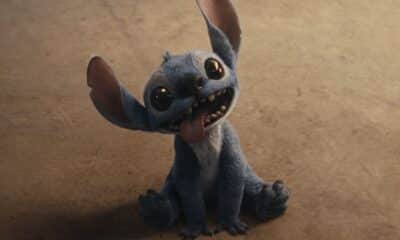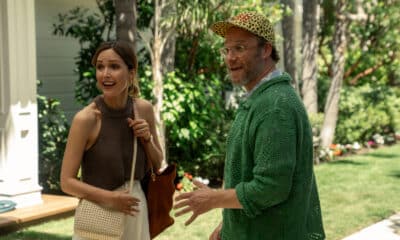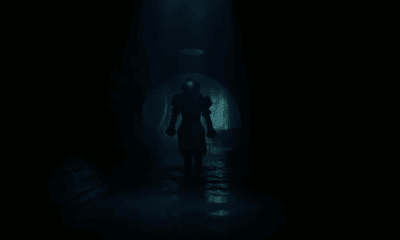 Terrorism, drug addiction, gambling and crime. Sounds exciting doesn’t it? Well, despite exploring all these thrilling topics and more, Donna Tartt’s latest Pulitzer Prize winning novel, The Goldfinch doesn’t quite live up to the hype.
Terrorism, drug addiction, gambling and crime. Sounds exciting doesn’t it? Well, despite exploring all these thrilling topics and more, Donna Tartt’s latest Pulitzer Prize winning novel, The Goldfinch doesn’t quite live up to the hype.
The author of the amazingly well received The Secret History (1992), a story about a college murder, certainly takes her time in writing each opus, clocking in at around ten years per book. Her sophomore novel, The Little Friend (2002) had a strong opening in its depiction of another murder—this time that of a young boy, however the rest of the novel which charted his sister’s attempts to solve the crime, floundered in places.
So everything was resting on The Goldfinch. Would it be a return to form? Or would it suggest that Tartt was yet another author suffering from the curse of the “too good first book”? Since she’s just won the Pulitzer for this novel, we might say it’s a moot point…
The Goldfinch tells the story of Theo, whose world collapses when he visits the Metropolitan Museum of Art with his mother. As he’s looking at Fabritius’s painting, The Goldfinch (yes, it’s a real work of art) a terrorist bomb rips through the place, killing his mother and beginning years of post-traumatic stress and depression for Theo. But it’s also at the museum that he spots red-headed Pippa, and it’s instant obsession. In the aftermath of the explosion, Theo is given a ring by Pippa’s dying uncle and then egged on to nick The Goldfinch. And so begins the second obsession in Theo’s life.
Orphaned in New York, Theo spends his days in a pit of misery, living with a school chum’s WASP family, before making his way to antique dealer, James Hobart to return the ring. It’s here that he finds some solace in helping Hobie restore furniture in between stealing glances at a recovering Pippa. Some have commented on the Dickensian feel of Tartt’s plotting, with questions raised about origins, orphans and lineage, and while this certainly feels true, there’s something that doesn’t quite work with The Goldfinch.
The set-up in New York is incredibly drawn out, with pages and pages dedicated to Theo’s inner monologue. Tartt has chosen a first person narration for The Goldfinch, yet his voice doesn’t seem especially authentic for a teenage boy—in fact, I found little to differentiate him from that of Richard in The Secret History. A later device in the final few pages, where Theo reveals he’s written The Goldfinch from detailed diary entries he wrote every day of his life seems awkward.
The best part of the novel is definitely the Las Vegas section. Theo’s wayward, money-grabbing father, with chavvy girlfriend in tow, claims Theo and takes him to live in the outskirts of the Sin City and it’s here that Theo slips into substance and alcohol abuse and meets Boris, the dodgy Ukrainian. Tartt’s writing beautifully captures the emptiness of Theo’s existence, his self-loathing and self-destructive behaviour perfectly mirrored by the arid, brittle landscape where “the desert air burned our nostrils and scraped our throats dry”. I was reminded a little of Tartt’s college chum Bret Easton Ellis and his depiction of a blank and disaffected youth in Less than Zero.
But Theo still has the painting stuffed behind his bed. It’s to prove a constant worry and obsession for him and eventually leads to him getting tied up with loads of dodgy deals, eventually escalating to another drawn-out sequence in Amsterdam. There’s guns aplenty in this final part, and suddenly we’re in a thriller. The change jars, and you’ll find the novel’s believability stretched.
I think part of the problem with The Goldfinch, apart from the pace, is the lack of any characters you particularly empathise with. Boris is probably the most interesting, and much of his depiction strays into eastern European stereotyping—all machismo, vodka, dodgy deals, stuffed cabbage and pickled eggs. So when the stakes get raised for Theo, I found I didn’t really care that much, in fact, I was more concerned about his dog, Popper.
So all in all, The Goldfinch is a mixed bag. It doesn’t have the killer openings of either The Secret History or The Little Friend, but there’s certainly evocative passages, such as the terrorist bomb, New York in autumn or the moral emptiness out in the desert. But there’s a lot of clunky prose too, many endless interior monologues and affected musings about art and authenticity. And finally—the pace. The Goldfinch is a rambling behemoth of a novel that crawls through its many twists and turns to a rather unlikely ending.
[usr=2] The Goldfinch is published by Abacus and out in paperback now.
Claire Joanne Huxham comes from the south-west, where the cider flows free and the air smells of manure. She teaches A-level English by day and fights crime by night. When not doing either of these things she can usually be found polishing her Star Trek DVD boxsets. And when she can actually be bothered she writes fiction and poetry that pops up on the web and in print. Her favourite film in the whole world, ever, is BLADE RUNNER.

1 Comment
Leave a Reply
Leave a Reply
Latest Posts
-


Film Trailers
/ 1 day agoFirst trailer for Darren Aronofsky’s ‘Caught Stealing’
Sony Pictures has released the debut trailer for Darren Aronofsky’s new film Caught Stealing,...
By Paul Heath -


Film Reviews
/ 3 days ago‘Lilo and Stitch’ review: Dir. Dean Fleischer Camp (2025)
Director Dean Fleischer Camp won audiences over with the fantastic Marcel the Shell with...
By Kat Hughes -


Apple TV
/ 3 days agoApple TV+ debuts first look at new season of ‘Platonic’ with Seth Rogen and Rose Byrne
Apple TV+ has landed a first look at the second season of Platonic, the...
By Paul Heath -


Television
/ 3 days agoTrailer for HBO Max prequel series ‘IT: Welcome to Derry’
A teaser trailer has landed for HBO Max’s IT: Welcome to Derry which will...
By Paul Heath




Hedy
Sep 14, 2014 at 7:40 pm
Given Huxham’s bio snippet, I’m surprised she didn’t get the Blade Runner references in the novel.